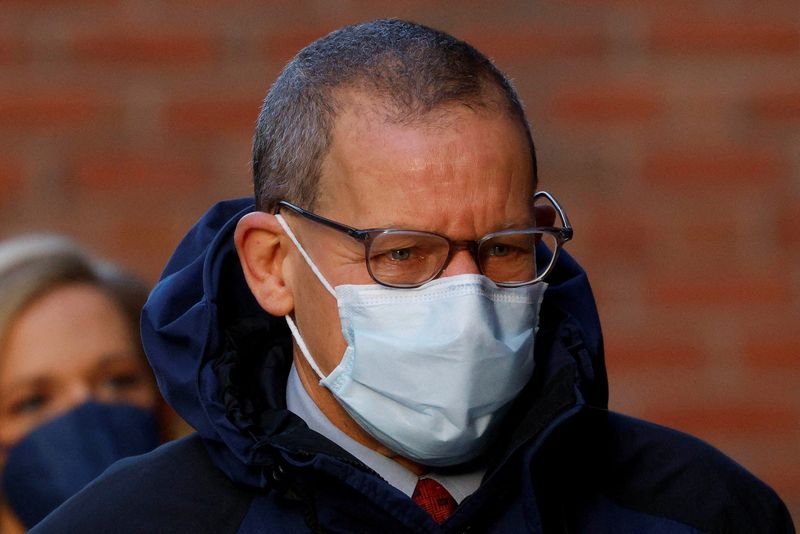By Nate Raymond
BOSTON (Reuters) - A lawyer for a Harvard University professor charged with concealing his ties to a China-run recruitment program accused U.S. prosecutors on Wednesday of "inventing something out of nothing" as the closely watched trial got underway.
Jurors heard opening statements from prosecution and defense lawyers in the trial of Charles Lieber, a nanotechnology pioneer and former Harvard chemistry department chairman facing six criminal charges including making false statements, filing false tax returns and failing to report foreign bank accounts.
Lieber, 62, stood briefly to face the jury in federal court in Boston as defense lawyer Marc Mukasey said investigators "mangled" or "made up" evidence to try to show that the defendant lied to authorities.
"If there was a Nobel Prize for inventing something out of nothing, the government's case would win," Mukasey told jurors.
In the prosecution opening statement, Assistant U.S. Attorney James Drabick told jurors that Lieber was a participant in China's Thousand Talents Program, which prosecutors have said China uses to entice foreign researchers to share their knowledge with it.
The trial represents a test of the U.S. Justice Department's "China Initiative" launched in 2018 to combat Chinese economic espionage and trade secrets theft. Critics have said the initiative harms academic research and racially profiles Chinese researchers.
Drabick said Lieber participated in the Thousand Talents Program by affiliating from 2011 to 2015 with Wuhan University of Technology in China, which paid him tens of thousands of dollars in hopes of boosting its own reputation.
Lieber denied his involvement in response to inquiries from the U.S. Defense Department and the U.S. National Institutes of Health, which had awarded him $15 million in research grants, and concealed his income and a Chinese bank account, Drabick said.
Drabick said Lieber's emails prove that he participated in the program and that, after his 2020 arrest, he admitted in a recorded FBI interview that he "shouldn't have had an agreement and accepted money."

"You'll hear him explain he did so when he was younger and stupid," Drabick said.
Defense lawyer Mukasey said that investigators failed to write down exactly what Lieber told them prior to his arrest and that he had tried to respond truthfully during "confused" questioning by the FBI after his arrest.